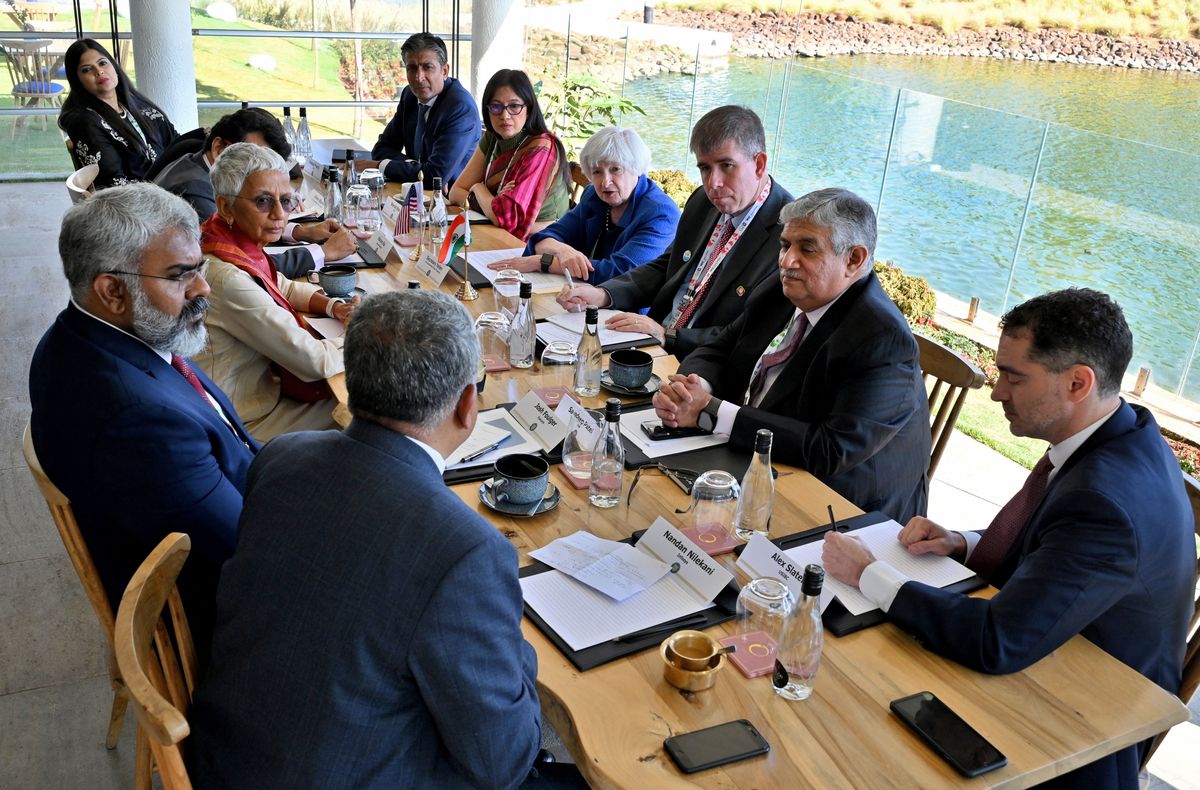What does the G20 say about the war in Ukraine?
Every year, the G20 hosts a summit for the economic and financial leaders of the world's 20 leading economies.

A few minutes every morning is all you need.
Stay up to date on the world's Headlines and Human Stories. It's fun, it's factual, it's fluff-free.
The backstory: Every year, the G20 hosts a summit for the economic and financial leaders of the world's 20 leading economies. One country is chosen as president of the G20 throughout the year – for 2023, it's India. Each G20 year also has a different theme; India's is "One Earth, One Family, One Future." But the G20 isn't one united bloc. Eastern countries like China and Russia are represented alongside many Western countries, like the US and parts of Europe, so there are bound to be differences.
In the year since the war in Ukraine started, world economies have been strained, with issues in the food and energy supply chains. This chaos also made it so that economic progress – for example, fighting poverty and hunger and fixing widespread debt problems – has often been held up.
More recently: Leading up to the G20 Summit, there are "working group meetings" throughout the year to discuss different issues. One of these meetings took place in India's Bengaluru over the weekend.
At last year's G20 Summit in November in Bali, Indonesia, a joint declaration was made at the end of the Summit stating that most members condemned the war in Ukraine. Russia and China approved the declaration without agreeing to condemn the war but instead acknowledging that most countries did.
The development: The group ended up divided at this weekend's meeting in Bengaluru. On Friday, G7 countries announced a whirlwind of new sanctions on Russia, while some developing nations like India hesitated to criticize Russia's invasion of Ukraine. Earlier last week, China published a 12-point plan for ending the war in Ukraine, which some have criticized as being too pro-Russian. By the end of the meeting on Saturday, there wasn't an agreement on how to represent the war in Ukraine in the group's summary, with China and Russia skipping signing parts that referred to the war. Holdouts felt that the G20 meetings are meant to focus on economic, not security, issues. On the other hand, others see the Ukraine war as having a major economic effect on the rest of the world.
Key comments:
The 2022 Bali declaration said that "most members strongly condemned the war in Ukraine and stressed that it is causing immense human suffering and exacerbating existing fragilities in the global economy – constraining growth, increasing inflation, disrupting supply chains, heightening energy and food insecurity, and elevating financial stability risks."
Ajay Seth, a senior Indian official, held a press conference after the meetings this weekend ended, saying China and Russia chose not to sign off on some wording because "their mandate is to deal with economic and financial issues," whereas "all the other 18 countries felt that the war has got implications for the global economy" and needed to be mentioned."
"... the activities of the G20 continue to be destabilized by the Western collective and used in an anti-Russian ... way," commented Russia's foreign ministry.
"This is a war. And this war has a cause, has one cause, and that is Russia and Vladimir Putin. That must be expressed clearly at this G20 finance meeting," German Finance Minister Christian Lindner said.




Comments ()